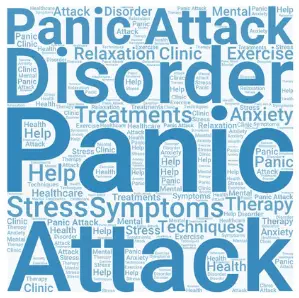There are different symptoms of panic attacks at night. Some of them are feeling restless or agitated, having difficulty falling asleep, staying asleep, experiencing bad dreams or nightmares, and feeling fatigued during the day. Some people may also experience physical symptoms. These include heart palpitations, chest pain, sweating, and shortness of breath. Panic attacks at night can be very distressing and may make it difficult to function during the day. If you experience panic attack symptoms, you must speak to a doctor or mental health professional to receive treatment.

For people with panic disorder, nighttime can be challenging. They are more likely to experience anxiety and panic attacks during the night. They may also have difficulty sleeping due to their fear of having an attack. According to one study, almost 60% of people with panic disorder experience at least some insomnia symptoms.
There are many reasons why panic attacks and symptoms at night can be particularly distressing. For one, the darkness can amplify the physical sensations associated with an attack. Symptoms such as a racing heart or shortness of breath become more intense at night. This can make the experience even more terrifying. Additionally, panic or anxiety attacks often occur when people are alone. This can heighten the feeling of isolation and helplessness. And finally, they can disrupt rest because they usually happen a little before or during sleep. This can lead to fatigue during the day. If you suffer from panic attacks, it is essential to seek treatment. This will help you can find relief from these symptoms.
There are a few simple things that panic attack sufferers can do to help themselves when struggling with symptoms at night:
- It is important to establish a regular sleep routine and stick to it as much as possible. This means going to bed and waking up at the same time each day and avoiding naps during the day.
- It is important to create a relaxing environment in your bedroom. Keep things like work materials and electronics out of the room.
- It is important to avoid consuming caffeine and alcohol before bed.
These can both contribute to anxiety and make it harder to fall asleep. If you follow these simple steps, you should find it easier to manage.
Panic attacks at night can be very distressing and may make it difficult to function during the day. If you experience these symptoms, you must speak to a doctor or mental health professional to receive treatment. There are a few simple things panic attack sufferers can do to help themselves when struggling with symptoms at night—establishing a regular sleep routine and creating a relaxing environment in their bedroom. By following these steps, it should be easier to manage the symptoms of panic attacks at night.

